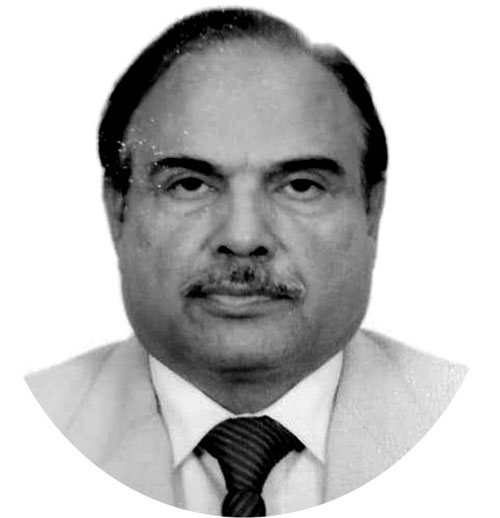EVMs first used in Kerala in 1982
THE Electronic Voting Machines [EVMs] were introduced in just 50 polling booths in the election in which the late Congress leader AC Jose and the late Communist Party of India leader N Sivan Pillai were locked in a tight contest.
The use of EVMs in some booths of the Paravur Assembly constituency in Ernakulam was fixed in the electoral history as they were introduced in the constituency in the 1982 polling, a first in the country.
The Congress candidate was defeated by a thin margin of 123 votes by Pillai. Jose challenged the election of his rival in the Kerala High Court, arguing that the Representation of the People Act, 1951 and the Conduct of Elections Rules, 1961 did not empower the Election Commission to use EVMs.
The High Court refused his plea. But on an appeal by Jose, the Supreme Court in 1984 ordered a re-poll in the 50 polling stations using conventional ballot papers. Jose won the seat in the re-poll.
According to the Supreme Court, the Election Commission should have conducted the poll by ballot papers as prescribed by the then existing provisions of the Representation of the People Act, 1951 and the Conduct of Election Rules, 1961. It held that the Commission could not ‘‘innovate a new method”.
The new generation of EVMs has Voter Verified Paper Audit Trail (VVPAT), which prints a small slip of paper that carries the name, symbol and the serial number of the candidate.
In 1992, Parliament inserted Section 61-A in the Act and rules validating the use of the EVM and paving way for their use in elections. The EC started using EVMs widely since 1998.
“The problem, however, is that only a small number of votes are now subjected to VVPAT scrutiny across the country and the Election Commission has to increase the sample test reasonably and substantially to achieve the very objective of VVPAT.
Supreme Court lawyer Kaleeswaram Raj says the plea for abolishing EVMs has been repeatedly rejected by the Supreme Court.
The Court has issued directives for using VVPAT to ensure accuracy and fairness in the EVM practice in 2013.
In Pakistan’s context, we should move evolutional manner rather than revolutionary. It’s not simply a shopping list or purchasing of machines only, its complete transformation from manual to digital system.
This requires time, money, political consensus and whole project management of digital technologies.
We also must keep this in mind that various developed countries are coming back to paper ballot after using electronic voting for more than two decades.
We should be wise and should not hurry to opt it. My suggestion is to open debate in Parliament on this issue and involve Election Commission of Pakistan for seeking further guidance.
It is vital to inform that our Parliament already wasted three long years and now Federal Government imposing Ordinance on ECP where less than two years are left for the next general election.
Lastly, I would like to comment on Overseas Voting system. The idea of using Internet Voting for Overseas Voting is simply recipe of destruction and absolutely immature because Internet is not designed to conduct voting for national elections. That is why no country is conducting general election using Internet except Estonia.
Estonia has an exceptional case and even that case, the University of Michigan observed that some serious backdoors and vulnerabilities found in Estonia’s online voting.
If our government will consider for Internet voting then they should be ready to admit that non-state actors and hackers will also participate in our national elections and it will create serious international level conspiracy to spoil in-land elections as well.
Being an expert of electioneering having more than 35 years national and international experience, I must suggest the Government not to use Internet Voting at all and reserve seats for Overseas Pakistanis in Parliament and elect them just like they elect women on reserve seats.
And this can only be appropriately possible by setting quota-region wise like USA/Canada, Europe, Middle East, Australia/New Zealand, Far East and Africa.
It is prudent to say that we must use technology where it is really needed but it’s not always required everywhere.
Sometime technology brings secretive outcomes rather transparency especially when we use technology in elections in particular.
Mature leadership of any nation always study and prepare DOs and DONTs list based on experience of other countries, we should not leave everything on desire and cosmetics.
We must also debate and prepare aforesaid list and learn from other countries’ experiences because resources are precious that includes time, money and effort.
Careful and cautious move towards transformation is need of the time and be considered mature move.
The best fora are floor of Parliament, Standing Committees of Senate and the National Assembly to discuss all these reforms in detail keeping its merits and demerits in mind.
Why things are abruptly and haphazardly moving in a desperate manner in the name of electoral reforms.
Last but not the least, there are ten basic election principles for credible, trustworthy and transparent elections worldwide and that should be addressed for before implementing any new process, new procedure or new technology in electoral process.
Based on these, public trust and confidence developed on any Election Management Body (EMB).
These principles and key benchmark parameters are Transparency, Independence, Simplicity, Secrecy of Ballot, Anonymity of voter, Verifiability and Auditability, Free will of voter, Tamper evident, Inclusiveness, Supervised environment.
All these principles should comply by EMB, if anyone of these are violated, resultantly no political party will accept election including the ruling party of the country because these are the international standards of election.
—The writer is former Federal Secretary Election Commission of Pakistan and currently Chairman National Democratic Fo undation.










